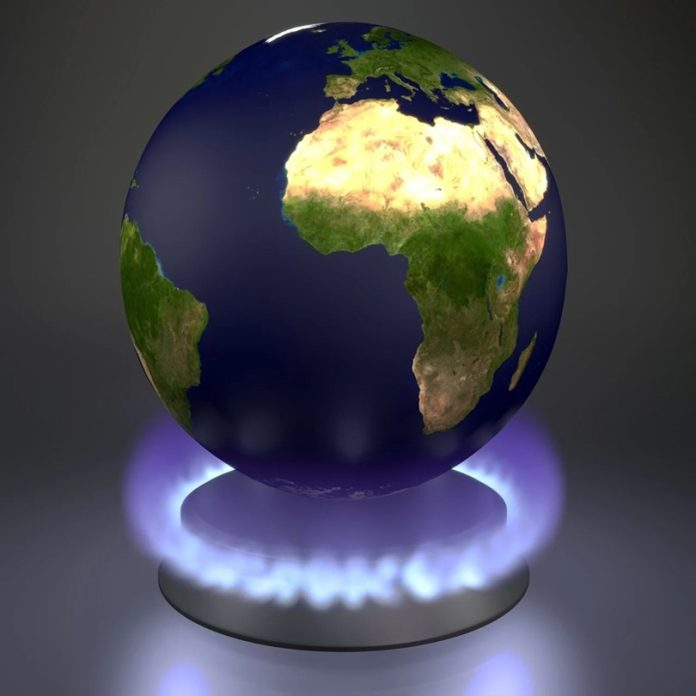
Just months after grappling with floods, Malaysia now faces a new challenge: battling extreme heat. A viral incident in Beaufort, Sabah has brought attention to the scorching temperatures. In a scene resembling an apocalyptic tale, a woman reportedly cooked an egg under the blistering sun without a stove.
With temperatures soaring to 36 degrees Celcius, but feeling more like a scorching 46 degrees Celcius, this astonishing display serves as a stark reminder that Malaysia is not immune to the escalating consequences of climate change.
The urgency to address the climate crisis is undeniable. Heatwaves have far-reaching impacts beyond our discomfort. UNICEF reports that by 2050, almost 2.2 billion children, nearly every child on Earth, will face high heatwave frequency. Currently, 559 million children endure these conditions, with an additional 624 million facing other heat-related challenges. These alarming figures emphasize the need for immediate action.
It is crucial to acknowledge that climate change is predominantly caused by anthropogenic or man-made factors. The burning of fossil fuels and deforestation are among the key contributors to the climate crisis.
When fossil fuels like coal, oil, and gas are burned, they release greenhouse gases into the atmosphere, exacerbating the greenhouse effect and ultimately contributing to global warming. Deforestation, on the other hand, diminishes the Earth’s ability to absorb carbon dioxide and disrupts vital ecosystems.
On this occasion of World Environment Day, it is an opportune time for us to reflect on Malaysia’s stance in safeguarding our planet. This significant occasion beckons us, particularly the children and youth, to unite in the noble cause of protecting and preserving our environment.
According to the Change for Climate (2020) report by UNDP, and UNICEF and supported by EcoKnights, 92% of young Malaysians are aware of environmental issues and recognise the climate crisis. However, as a young person, I feel frustrated by the insufficient collective response to this crisis. We acknowledge the planet’s plight, yet it seems that we don’t take the problem seriously enough.
Children and youth play a vital role in addressing climate change, offering critical perspectives, and driving constructive action. Their passionate voices and ability to inspire change can propel society forward. By actively engaging in sustainability initiatives, raising awareness, and advocating for stronger environmental policies, young individuals can influence their communities and push governments and corporations to prioritise climate action.
Through their unwavering determination, they can challenge the status quo, demand systemic change, and help forge a sustainable future for generations to come.
It is important to recognise that it is easy to feel like giving up, but there are numerous ways in which each of us can play a role in the fight against climate change. Here are some practical actions we can take:
Firstly, consider alternatives to driving alone, like carpooling, cycling, or walking, to cut carbon emissions and save on fuel and parking costs.
Also conserve energy by turning off lights and appliances when not in use and opt for energy-efficient bulbs and appliances.
Make mindful food choices, favoring plant-based meals and reducing meat consumption for a smaller carbon footprint.
Choose locally sourced, organic food to minimize environmental impact.
Actively engage in local environmental initiatives, volunteer, participate in clean-ups, and raise awareness about our planet’s well-being, and support businesses that prioritize sustainability and environmental responsibility.
Lastly, we can reduce plastic waste, carry reusable bags, water bottles, and straws, and choose minimally packaged products, conveying the demand for sustainability.
It is also worth noting that recycling, though beneficial, may not always be the best solution. Not everything can be recycled, and the process itself consumes energy and resources. To truly make a difference, we should focus on reducing waste by consuming less, choosing products with minimal packaging, and repairing instead of discarding them. By prioritising waste reduction, we can minimise our reliance on recycling.
But it’s not enough for individuals to make these changes alone. We need action from our government and corporations to make real progress in the fight against climate change. The Malaysian government has taken steps to reduce plastic waste by aiming to ban plastic bags for retail purposes by 2025. However, it’s important to recognise that public awareness and education are critical in making this policy a success.
Creating real change in reducing plastic waste requires more than just government pressure. It’s crucial that the government works in collaboration with businesses and individuals to provide alternative solutions to plastic bags.
Encouraging the use of reusable bags, for example, is an excellent alternative to single-use plastic bags. The government can also promote the use of biodegradable and compostable bags as an option to reduce plastic waste.
Furthermore, it is important to recognise the relevance of this action in the larger context of the climate crisis. While reducing plastic waste is crucial, it’s not the only solution to the environmental challenges we face. We need to address the root causes of the climate crisis and by acknowledging the anthropogenic nature of climate change, we can better highlight the need for systemic change and demand action from our government and corporations to protect our planet.
We hold the power to make a difference by taking practical actions to reduce our environmental impact. Let’s be change catalysts, advocating for systemic transformations that prioritise sustainability. By engaging with the government and corporations, we can build a greener future together. Let us champion environmental stewardship and nurture a harmonious world for ourselves and future generations.
NOTE: The writer is a Youth Climate Champions Consultant, UNICEF Malaysia, and Co-founder of Project Ocean Hope. He is also a PhD Candidate, Universiti Putra Malaysia (UPM).
Article originally published in: https://thepetridish.my/2023/06/19/from-floods-to-heatwaves-a-call-to-action-for-climate-change/